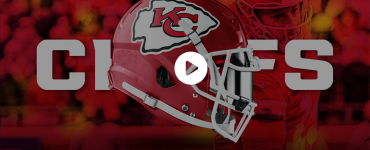
Cultivate A Culture Of Collaboration
Small teams successfully meet big client needs when they create an authentic culture of collaboration. True collaboration combines good ideas together, helping the best solutions and outcomes emerge. Collaborative thinking is important for all companies, but especially for larger organizations, where industries are much more likely to settle into outdated habits or fall into a creative rut. Because of their distinct size, small teams can have a serious collaborative advantage. With fewer people involved in the process, it’s easier for team members to build friendships and become comfortable together. This makes them more likely to think creatively, share ideas, and increase idea turnaround time than with a larger team.
Establish Unquestionable Transparency
To help large clients stay successful, small teams must establish crystal clear transparency. Every team member needs to understand who is taking on each task, what plans are in progress, and what their own individual responsibilities are. Transparency helps teams build trust, remove confusion, and ensure everyone is on the same page. When it comes to team transparency, smaller numbers can be a serious advantage. In large teams or enterprise organizations, workloads can often become unclear and confusing. It can be difficult to determine who is responsible for each assignment and tasks are divided disproportionately, with some employees taking on enormous efforts while other coworkers are unable to contribute effectively.
Keep The Final Outcome In Mind
Enterprise clients need teams to keep the end results in mind. This means that employees understand how their individual efforts contribute to client success and what the long-term goals of a completed project are. When employees have the end goal in mind they stay motivated and create better content. In large teams, employees often work in silos, only receiving enough information to complete their specific assignment. This often causes workers to feel disjointed from their tasks and struggle to stay engaged. In small companies, coworkers with different roles and responsibilities talk, work, and regularly interact, making it easier for everyone to see the complete picture.
Stay Accessible At All Times
Big clients are always busy and unexpected circumstances can happen in an instant! For any team to achieve big client success, they need to be prepared for unusual opportunities and abrupt plan changes at any time. When action needs to happen now, teams have to be accessible and ready to react immediately. Smaller teams are naturally easier to assemble, and have less moving parts to manage. This helps them avoid communication confusion and conflict in other areas. With a small, centralized, and easy-to-access team, client changes or concerns can be addressed right away. Small teams can quickly work together to create effective solutions and implement new ideas at a moments notice.
Embrace Constant Innovation
Small teams are constantly focused on innovation. To make their mark on the industry, they are striving to incorporate new ideas and think outside of the box. Smaller-sized teams provide big businesses the creativity, energy, and passion they often need to break out of legacy habits and find the next new idea.
MangoApps
At MangoApps, we equip teams with the work centered tools they need for success. We’re proud to offer companies an integrated employee platform where communication and collaboration are easy on every level.
To learn more about successfully serving big clients or how MangoApps helps organizations of every size contact us or schedule a free personalized demo today.







